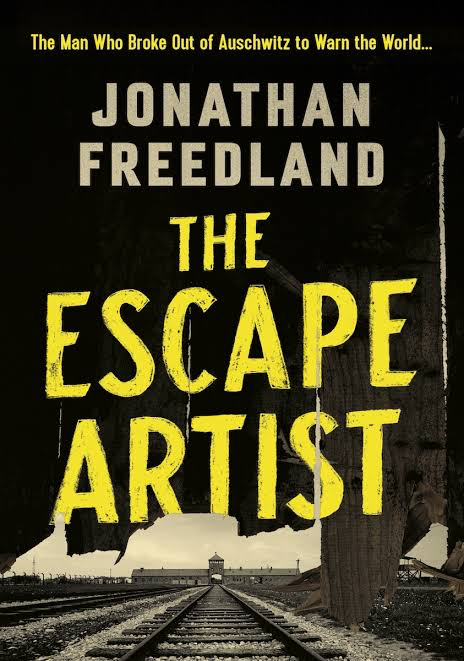In April 1944 a teenager named Rudolf Vrba was planning a daring and unprecedented escape from Auschwitz. After hiding in a pile of timber planks for three days while 3,000 SS men and their bloodhounds searched for him, Vrba and his fellow escapee Fred Wetzler would eventually cross Nazi-occupied Poland on foot, as penniless fugitives. Their mission: to tell the world the truth of the Final Solution. Vrba would produce from memory a breathtaking report of more than thirty pages revealing the true nature and scale of Auschwitz — a report that would find its way to Roosevelt, Churchill and the Pope, eventually saving over 200,000 Jewish lives. A thrilling history with enormous historical implications, THE ESCAPE ARTIST is the extraordinary story of a complex man who would seek escape again and again: first from Auschwitz, then from his past, even from his own name. In telling his story, Jonathan Freedland — the journalist, broadcaster and acclaimed, multi-million copy selling author of the Sam Bourne novels — ensures that Rudolf Vrba’s heroic mission will also escape oblivion.
I had been toying with purchasing this book for a little while: I would walk into the bookstore, pick it up, read the blurb, think to myself Do I have the mental and emotional stamina at the moment for a book about the Holocaust?
and then like the coward I am I would always put it back down and slink over to the Travel shelf.
Then during a chat in the office one day with one of my colleagues she mentioned how much she’d adored the book, so I purchased it and settled down one evening in bed to read it. And wow! I’m so glad I did, and so relieved that I didn’t deprive myself of reading it.
The book is captivating and superbly written. The story itself absolutely infuriated me. I found myself stopping, putting the book down, and then Googling various camp guards to see whether they got their comeuppance in the post-war aftermath. Spoiler alert: most never did, neither immediately after the war nor in the eight decades after. So I would shake my head at what depths man can sink to, woefully pick the book back up and read on… only to be infuriated again on the next page.
There are so many stories in this book of people who were as strong as a human can be, whilst being as weak as a human can be, and often in the same moment. Wilful ignorance, courageous bravery, deliberate and cold-blooded hatred, superhuman endurance, moral apathy and self-serving cowardice: all in one person, one story, told over and over again about many people, and their many stories. Walter Rosenberg, later calling himself Rudolf Vrba, saw and survived things that would have shattered most men, and his post-war struggles come as little surprise when one considers the depth of human depravity he had witnessed. I’m typing this review and even whilst thinking of reading about discarded children’s dolls on a mountain of personal belongings of gas chamber victims it’s hard to contain my emotion and outrageous anger. This man Rosenberg/Vrba not only contained it, but fought it, and ultimately helped to stop it. Instead of succumbing to this depravity he did what no other Jew had ever done before: he broke out to warn the world and try to stop the carnage. In doing so he saved hundreds of thousands of lives.
It gets even more frustrating after that: time and again the Allies tried to ignore, minimise or outright deny the reports and rumours trickling out of Nazi Germany about what was going on. Vrba is even confronted with resistance from other Jews. Nobody seemed willing to think the unthinkable: that mankind was capable of such raw brutality and hate. I can’t truly say I totally blame them: I’m struggling to think about it 80 years later.
Read this book. You owe it to the victims, and to Rudolf Vrba, whose story should be much better known.

